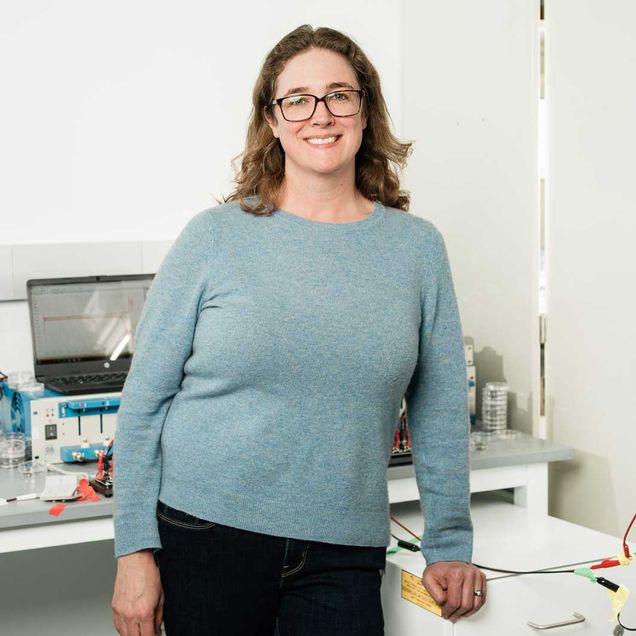Batteries, Reinvented
Boston University researchers are investigating ways to reinvent batteries, which need to be better, and safer, to efficiently store energy derived from renewable sources. As the world’s focus on clean energy continues, it’s essential that we find ways to improve what we use—especially the lithium-ion batteries in phones, laptops, and many other consumer electronics, which have presented the world with new and complex challenges.
These include the mining of raw materials, which is dangerous to the environment and the workers mining the materials, along with the inability to recycle these batteries, creating unprecedented waste.
To address this growing problem, Emily Ryan, associate professor of mechanical engineering, is using complex computer models to test alternative battery materials, like lithium metal instead of lithium ion. “If we started using lithium-metal batteries in your cell phone, instead of charging it every day, you would charge it once a week. Or in a car with the same size battery as we have now, you might get 600 miles instead of 300 miles,” says Ryan, who is associate director of BU’s Institute for Global Sustainability.

This new level of thinking and research joins other battery initiatives, which include finding alternative (and less hazardous) component materials and developing ceramic-based materials capable of storing energy that can be released as heat or electricity.
As this momentum continues, researchers anticipate that we will see better and more efficient battery design, stricter industry standards, and more affordable solutions for both the purchase and recycling of renewable batteries. As we look toward a future of electric cars and solar-powered homes, this is promising news for the planet that we are working hard to protect and preserve.